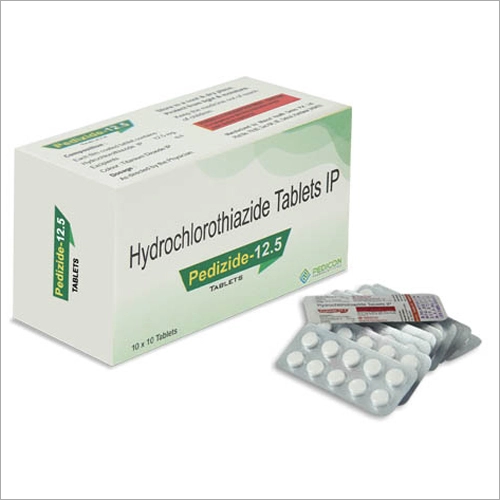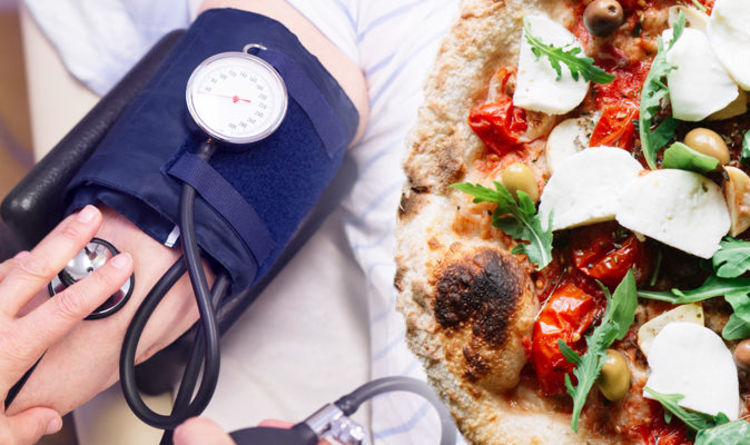Individuals may be prescribed Hydrochlorothiazide to help deal with hypertension or high blood pressure. The medication can protect the individual from heart attacks and other serious problems linked to high blood pressure. Nevertheless, it is vital to spend time reading Hydrochlorothiazide reviews, Hydrochlorothiazide Foods To Avoid and precautions to avoid serious interactions.
Are there specific foods that should be avoided when taking Hydrochlorothiazide? More about this will be provided below.

First, patients should spend time learning more about the basics of Hydrochlorothiazide. What is it and what does it do for patients? The medication is primarily used to treat high blood pressure although it is also prescribed for the treatment of edema. The water pill is effective for lowering blood pressure levels while reducing swelling from fluids.
It is a thiazide diuretic that works well for both purposes. While it is generally safe, it is pertinent to avoid mixing it with certain foods and other medications.
It is common for Hydrochlorothiazide to be combined with other medications. In particular, it is regularly used with Irbesartan. These medications are used simultaneously to treat hypertension. It is vital to treat this condition because it will put more pressure on the arteries and heart. If it is not treated, the patient could be more likely to experience a heart attack or stroke.
Using these medications together is a good way to lower blood pressure and avoid serious risks. Patients may want to speak to their doctors about using a combo drug that contains Irbesartan and Hydrochlorothiazide.
Another combo drug regularly given to patients with high blood pressure is Telmisartan Hydrochlorothiazide. Again, this combo medication works exceptionally well for the treatment of high blood pressure. High blood pressure can cause serious issues while adding to the workload of the arteries and heart. When this condition isn’t treated, it could cause the arteries and heart to stop working effectively.
Using this combo drug is a good way to deal with the problem. Telmisartan is an ARB or angiotensin II receptor blocker. As for Hydrochlorothiazide, it is a water pill. Therefore, these drugs will help keep the blood vessels free while removing excess water from the body.
Once someone has been diagnosed with hypertension, it is essential to begin treating the condition immediately. In some situations, the patient will be required to take Bisoprolol and Hydrochlorothiazide. This combo mediation is often used for the treatment of hypertension and it works great for this purpose. Untreated hypertension can eventually lead to heart damage, kidney damage, and heart attacks.
Bisoprolol is a safe beta-blocker that can be used with Hydrochlorothiazide which is a water pill. This combination drug is primarily available in tablet form so it is easy to take. There are potential drug interactions that must be avoided. If someone is taking Bisoprolol Hydrochlorothiazide, they should avoid using Aspirin, Bromfenac, Albuterol, and Dofetilide. It is wise to consult with a medical professional because they’ll provide more advice for safely taking this medication.
Patients with hypertension have the option of using Chlorthalidone or Hydrochlorothiazide. The doctor will usually decide which medication is best. Nevertheless, it is essential to learn more about all options. Hydrochlorothiazide is a water pill that can help reduce blood pressure levels. However, it is generally believed that Chlorthalidone is better in many regards.
It is believed that this medication can provide long-term results while controlling blood pressure levels for up to 24 hours. Furthermore, this medication may be up to two times stronger than Hydrochlorothiazide. With this in mind, patients will find that this medication is stronger and it works for longer.
Again, speak to a medical professional to find out which medication is best.
Individuals dealing with high blood pressure may be asked to take a combination medication to manage the problem. Some will take Quinapril and Hydrochlorothiazide. They’re used together to maintain safe blood pressure levels to protect the patient from heart attacks and other serious problems. When this condition goes untreated, it could eventually cause strokes, heart attacks, and serious heart damage.
When blood pressure is managed, these problems are much less likely. Quinapril is an ACE inhibitor that blocks a chemical that tightens blood vessels. Once the blood vessels are relaxed, blood pressure levels will drop. This medication can be used with Hydrochlorothiazide to obtain better results.
The water bill helps increase urine flow and reduce blood pressure. This combination medication is available in tablet form.
Olmesartan and Hydrochlorothiazide is a combo drug used to treat high blood pressure. When used for this purpose, the medication can protect patients from strokes and heart attacks. This combination drug is available in tablet form.
Some patients will experience side effects when using this medication. In general, hair loss should not be a problem. Nevertheless, it is vital to understand that this medication could lead to an electrolyte imbalance. Once this happens, the patient could experience dry skin and an itchy scalp.
The medication shouldn’t impact the patient’s hair growth though.
Are patients going to experience weight loss when taking this medication? Is weight loss a common side of Hydrochlorothiazide? Patients may lose weight when using this drug. In a recent study, patients taking 50mg per day lost up to 3.5 pounds. Another thing to remember is that appetite loss is a common side effect of Hydrochlorothiazide.
Therefore, there is a good chance that the patient will lose weight when using this medication.
Patients taking Hydrochlorothiazide must remember that this medication is a diuretic. Unfortunately, certain risks are associated with the use of diuretics for long periods. In particular, using this medication can increase the patient’s risk of experiencing gout in the future. Gout is a unique arthritis that is caused by an accumulation of uric acid crystals in the joints.
Diuretics reduce the fluid in the body by increasing urination. Ultimately, it is believed that this can lead to gout.
Sadly, using Hydrochlorothiazide for long periods can increase the risk of certain conditions. In non-Asian countries, research suggests that this medication can increase the patient’s risk of developing melanoma and NMSC. However, it should be noted that the risk depends on the patient’s age and how often they’re exposed to the sun.
Since Hydrochlorothiazide is a diuretic, it could have an impact on calcium levels. These medications tend to prevent calcium from exiting the body during urination. Once this happens, the calcium levels could increase.
It is common for adults to take as little as 25mg per day of Hydrochlorothiazide. However, they may also take as much as 100mg. The doctor will decide what is needed.

Like most prescription medications, Hydrochlorothiazide interacts with different types of food. Pharmacists and primary care physicians need to make this clear to their patients. It is important to note that Hydrochlorothiazide has a tendency to reduce potassium in the bloodstream. This side effect should not encourage patients to add potassium-enriched food to their existing. In fact, it is even more important to avoid food rich in potassium.
Many salt substitutes contain potassium for flavor. Hydrochlorothiazide patients may be asked to utilize iodized salt substitutes to improve blood pressure management. It is important to not replaced iodized salt with potassium-based substitutes. Nu-Salt, Accent Flavor Enhancer, Dash Salt Seasoning, and Benson’s Table Tasty are safe alternatives.
Bananas should not be included in the diet. While a delicious, healthy fruit, the banana is rich in potassium. Grapefruit and oranges should also be avoided when taking Hydrochlorothiazide. Citrus fruits contain a high amount of potassium that patients are supposed to avoid.
Prunes and raisins are other foods to omit from the diet. The high level of potassium content can cause an interaction with Hydrochlorothiazide. Dried fruits, beet greens, avocados, winter squash, spinach, broccoli, and potatoes should also be avoided.
Hydrochlorothiazide and alcohol do not work together. A side effect of alcohol is an increase in blood pressure levels.
Patients should also avoid adding herbal supplements to their daily medicine regimen. The US Food and Drug Administration does not approve herbal supplements. With this in mind, supplement manufacturers are not always forthcoming with ingredient information. While some manufacturers may guarantee their dietary supplements are all-natural or organic, there is no evidence to back up these claims. It is in the patient’s best interest to avoid all herbal supplements unless they are prescribed by their physician.
NSAIDs (Naproxen and Ibuprofen) should not be administered without seeking the advice of a licensed doctor. Ibuprofen and other NSAIDs have a tendency to interfere with renal (kidney) function. Water and sodium retention, both side effects of NSAiDs, can cause Hydrochlorothiazide to not work properly. The side effect of these medications is higher blood pressure levels.
Patients prescribed Hydrochlorothiazide will be surprised by the expensive price tag. They can save money by taking advantage of the CharityRx discount card. When someone uses this discount card, they can save up to 80% on their prescriptions.
Hydrochlorothiazide is approved by the FDA to treat hypertension. Blood pressure management is more effective when patients carefully monitor their diet. Avoiding potassium-rich food, dietary supplements, and NSAIDs is key to good blood pressure maintenance.